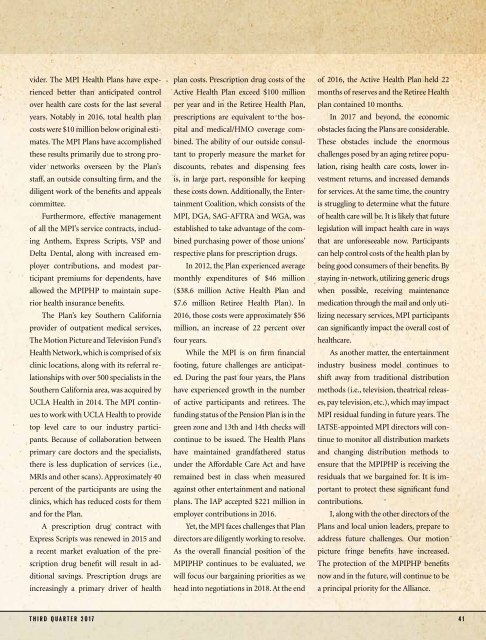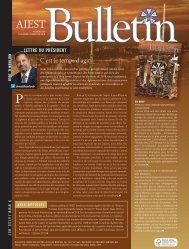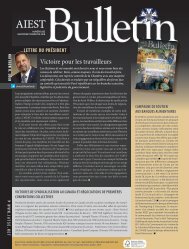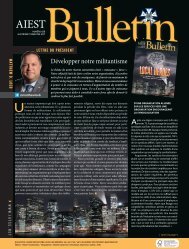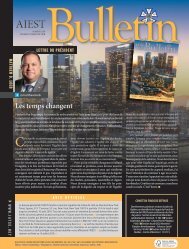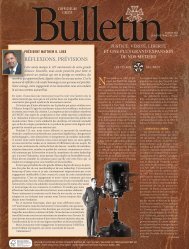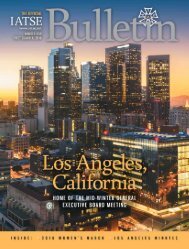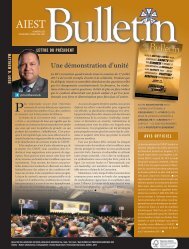IATSE_3rd2017_web
Create successful ePaper yourself
Turn your PDF publications into a flip-book with our unique Google optimized e-Paper software.
vider. The MPI Health Plans have experienced<br />
better than anticipated control<br />
over health care costs for the last several<br />
years. Notably in 2016, total health plan<br />
costs were $10 million below original estimates.<br />
The MPI Plans have accomplished<br />
these results primarily due to strong provider<br />
networks overseen by the Plan’s<br />
staff, an outside consulting firm, and the<br />
diligent work of the benefits and appeals<br />
committee.<br />
Furthermore, effective management<br />
of all the MPI’s service contracts, including<br />
Anthem, Express Scripts, VSP and<br />
Delta Dental, along with increased employer<br />
contributions, and modest participant<br />
premiums for dependents, have<br />
allowed the MPIPHP to maintain superior<br />
health insurance benefits.<br />
The Plan’s key Southern California<br />
provider of outpatient medical services,<br />
The Motion Picture and Television Fund’s<br />
Health Network, which is comprised of six<br />
clinic locations, along with its referral relationships<br />
with over 500 specialists in the<br />
Southern California area, was acquired by<br />
UCLA Health in 2014. The MPI continues<br />
to work with UCLA Health to provide<br />
top level care to our industry participants.<br />
Because of collaboration between<br />
primary care doctors and the specialists,<br />
there is less duplication of services (i.e.,<br />
MRIs and other scans). Approximately 40<br />
percent of the participants are using the<br />
clinics, which has reduced costs for them<br />
and for the Plan.<br />
A prescription drug contract with<br />
Express Scripts was renewed in 2015 and<br />
a recent market evaluation of the prescription<br />
drug benefit will result in additional<br />
savings. Prescription drugs are<br />
increasingly a primary driver of health<br />
plan costs. Prescription drug costs of the<br />
Active Health Plan exceed $100 million<br />
per year and in the Retiree Health Plan,<br />
prescriptions are equivalent to the hospital<br />
and medical/HMO coverage combined.<br />
The ability of our outside consultant<br />
to properly measure the market for<br />
discounts, rebates and dispensing fees<br />
is, in large part, responsible for keeping<br />
these costs down. Additionally, the Entertainment<br />
Coalition, which consists of the<br />
MPI, DGA, SAG-AFTRA and WGA, was<br />
established to take advantage of the combined<br />
purchasing power of those unions’<br />
respective plans for prescription drugs.<br />
In 2012, the Plan experienced average<br />
monthly expenditures of $46 million<br />
($38.6 million Active Health Plan and<br />
$7.6 million Retiree Health Plan). In<br />
2016, those costs were approximately $56<br />
million, an increase of 22 percent over<br />
four years.<br />
While the MPI is on firm financial<br />
footing, future challenges are anticipated.<br />
During the past four years, the Plans<br />
have experienced growth in the number<br />
of active participants and retirees. The<br />
funding status of the Pension Plan is in the<br />
green zone and 13th and 14th checks will<br />
continue to be issued. The Health Plans<br />
have maintained grandfathered status<br />
under the Affordable Care Act and have<br />
remained best in class when measured<br />
against other entertainment and national<br />
plans. The IAP accepted $221 million in<br />
employer contributions in 2016.<br />
Yet, the MPI faces challenges that Plan<br />
directors are diligently working to resolve.<br />
As the overall financial position of the<br />
MPIPHP continues to be evaluated, we<br />
will focus our bargaining priorities as we<br />
head into negotiations in 2018. At the end<br />
of 2016, the Active Health Plan held 22<br />
months of reserves and the Retiree Health<br />
plan contained 10 months.<br />
In 2017 and beyond, the economic<br />
obstacles facing the Plans are considerable.<br />
These obstacles include the enormous<br />
challenges posed by an aging retiree population,<br />
rising health care costs, lower investment<br />
returns, and increased demands<br />
for services. At the same time, the country<br />
is struggling to determine what the future<br />
of health care will be. It is likely that future<br />
legislation will impact health care in ways<br />
that are unforeseeable now. Participants<br />
can help control costs of the health plan by<br />
being good consumers of their benefits. By<br />
staying in-network, utilizing generic drugs<br />
when possible, receiving maintenance<br />
medication through the mail and only utilizing<br />
necessary services, MPI participants<br />
can significantly impact the overall cost of<br />
healthcare.<br />
As another matter, the entertainment<br />
industry business model continues to<br />
shift away from traditional distribution<br />
methods (i.e., television, theatrical releases,<br />
pay television, etc.), which may impact<br />
MPI residual funding in future years. The<br />
<strong>IATSE</strong>-appointed MPI directors will continue<br />
to monitor all distribution markets<br />
and changing distribution methods to<br />
ensure that the MPIPHP is receiving the<br />
residuals that we bargained for. It is important<br />
to protect these significant fund<br />
contributions.<br />
I, along with the other directors of the<br />
Plans and local union leaders, prepare to<br />
address future challenges. Our motion<br />
picture fringe benefits have increased.<br />
The protection of the MPIPHP benefits<br />
now and in the future, will continue to be<br />
a principal priority for the Alliance.<br />
THIRD QUARTER 2017 41


